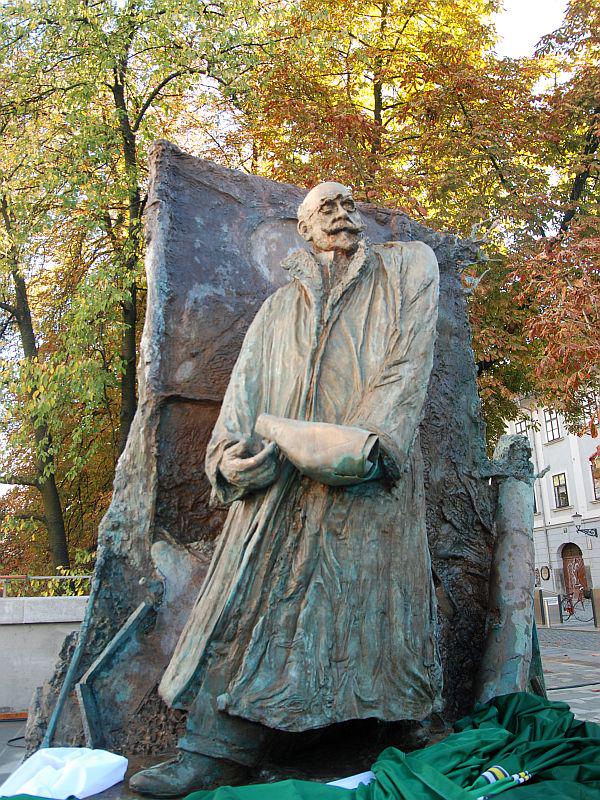Through the years, Ljubljana has had many different mayors. Some were forgotten almost immediately after leaving city hall, while others changed the Slovenian capital for the better in many ways. However, no mayor has left a greater legacy on Slovenia’s capital than Ivan Hribar.
Born in 1851, Hribar spent his youth in Prague. His years spent living in the bustling Central European metropolis inspired his passion for modern urban development. After several years spent working in a bank, Hribar was drawn to local politics in Ljubljana. He was elected to the city council and began applying many of the ideas he developed while living abroad. While still a councilman, he was put in charge of the city’s new water supply system – an ambitious project for a young politician. However, his big opportunity came in 1895.
That year, a powerful earthquake struck Ljubljana, leaving large parts of the city center in ruins. Hribar led the recovery effort. His response impressed his superiors, and he was elected Mayor of Ljubljana in 1896. Immediately after taking office, he began to plan for the city’s reconstruction. Hribar was determined to give Ljubljana plenty of big-city flavor and a modern face. He selected the architect Max Fabiani to rebuild the ruined parts of the city in the very latest Art Nouveau style known as the Secession. In just a few years, Ljubljana had been transformed from a small provincial town into one of the empire’s most modern cities.
During his term in office, Hribar doubled the number of buildings in Ljubljana and introduced a modern street lighting system. He was also a strong champion of the Slovenian middle class, and helped to set up various cultural institutions.
It was Hribar’s passion for the Slovenian cause, however, that ultimately led to his downfall. He was distrusted by the powerful German minority in Ljubljana, and the authorities in Vienna forced him to step down in 1910 even though he had been reelected by the city council. Worse was to come: He was imprisoned during World War I for belonging to a nationalist political party and spent much of the conflict behind bars.
After the war, he served as a Yugoslav Senator and an ambassador in Prague. In 1941, Italy invaded Yugoslavia, and Hribar, who was then 90 years old, was asked to become a figurehead mayor of Ljubljana. Realizing that the offer was a ploy through which Italy wanted to legitimize its occupation of Slovenia, he opted for the ultimate act of patriotism: He draped himself in a Yugoslav flag and jumped to his death into the Ljubljanica River. It was final act of love for a city that had always been his life’s passion.


































































